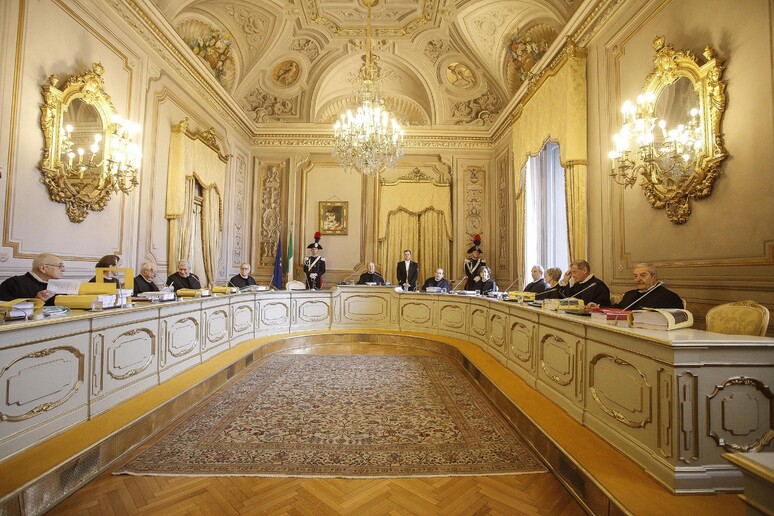The Constitutional Court's ruling
on the 'Italicum' electoral law will come tomorrow at "around
13:00-13:30," the court's secretary-general, Carlo Visconti,
said Tuesday.
The top court is set to rule on whether a number of aspects
of the law, especially its run-off, winner's bonus and 'blocked'
list leaders, comply with the Italian Constitution.
The Constitutional Court opened a public hearing on Tuesday
morning to examine the legitimacy of the 'Italicum'.
A decision is expected late on Tuesday or on Wednesday.
The court is called upon to consider the legitimacy of
various aspects of the law, including the bonus seats it awards
to the winning party to ensure it has a working majority and the
run-off round of voting to decide the winner if no single party
reaches the 40% threshold.
The Italicum was designed only to apply to the Lower House
as, under the Constitutional reform rejected on December 4, the
Senate was meant to be reformed and made up of regional
representatives.
The fact that the Constitutional Court was set to rule on the
Italicum is considered one of the reasons why President Sergio
Mattarella did not heed calls for early elections from
opposition parties when ex-premier Matteo Renzi quit last month
after his flagship Constitutional revamp was rejected.
Renzi was replaced by current Premier Paolo Gentiloni, the
former foreign minister.
Gentiloni is a member of Renzi's centre-left Democratic Party
(PD).
ALL RIGHTS RESERVED © Copyright ANSA











